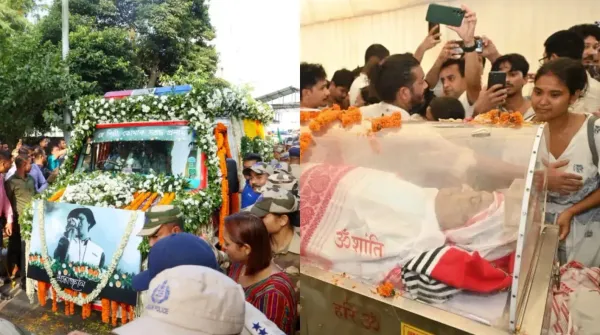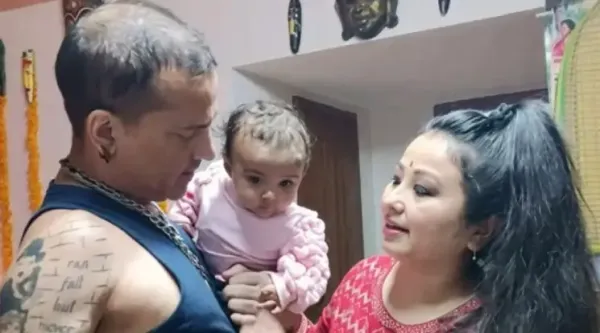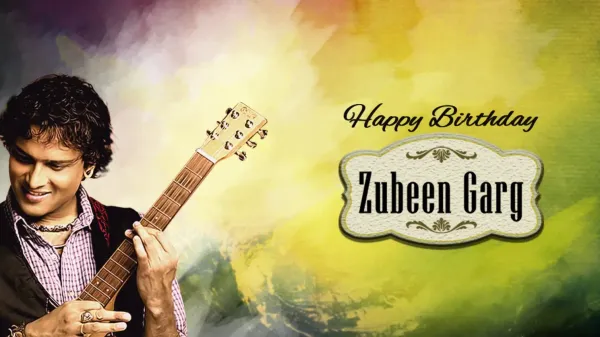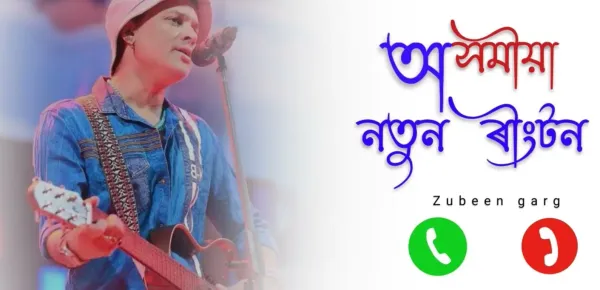Who is Zubeen Garg? 30 Untold Facts About the Voice of Assam
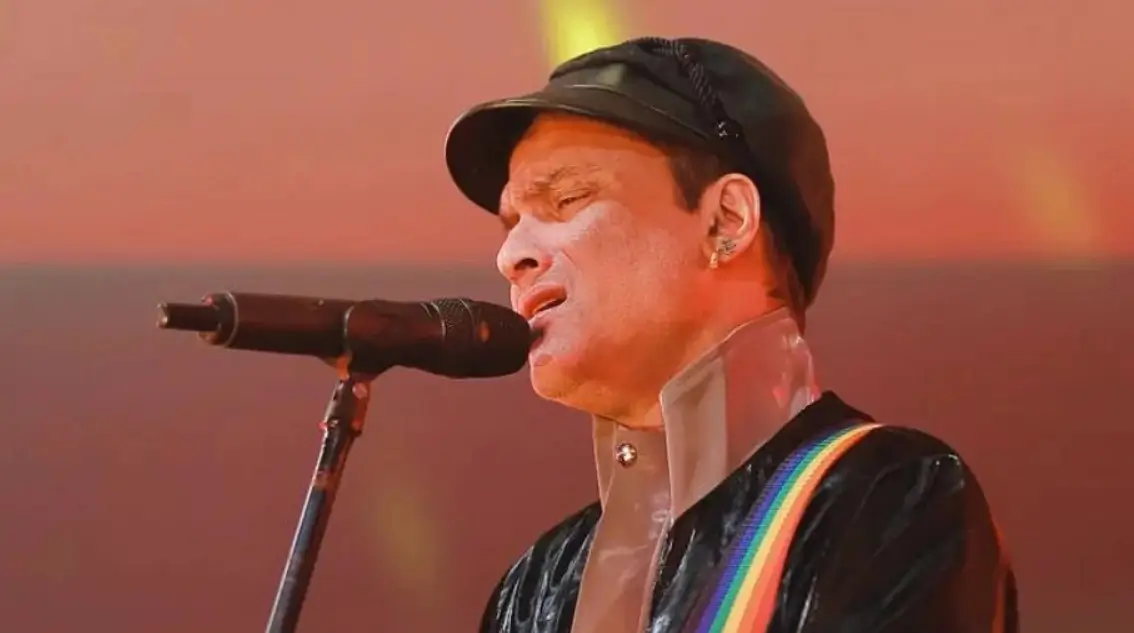
Introduction – Who is Zubeen Garg?
When someone asks “who is Zubeen Garg,” the answer is more than just “a singer.” Zubeen Garg is an institution in himself — a name synonymous with the musical heartbeat of Assam and a powerful voice in India’s diverse music scene. Born with an extraordinary gift, Zubeen has transcended regional boundaries to become an iconic playback singer, composer, actor, and philanthropist. His journey from the lush valleys of Assam to the global stage is a story of perseverance, raw talent, and unshakable passion.
Much like the Brahmaputra River that flows endlessly through Assam, Zubeen Garg’s music has touched countless lives, blending traditional Assamese sounds with modern rhythms. He is credited with revolutionizing the Assamese music industry, giving it a fresh identity, and bringing it to national prominence. Whether it’s his blockbuster Bollywood number “Ya Ali” or soulful Assamese tracks like “Mayabini” and “Mon,” his versatility makes him a household name.
In this article, we’ll explore Zubeen Garg’s life story, his achievements, controversies, and everything you need to know about the man behind the microphone. Let’s dive into who is Zubeen Garg and uncover 30 untold facts that shape his legacy.
Early Life and Childhood of Zubeen Garg
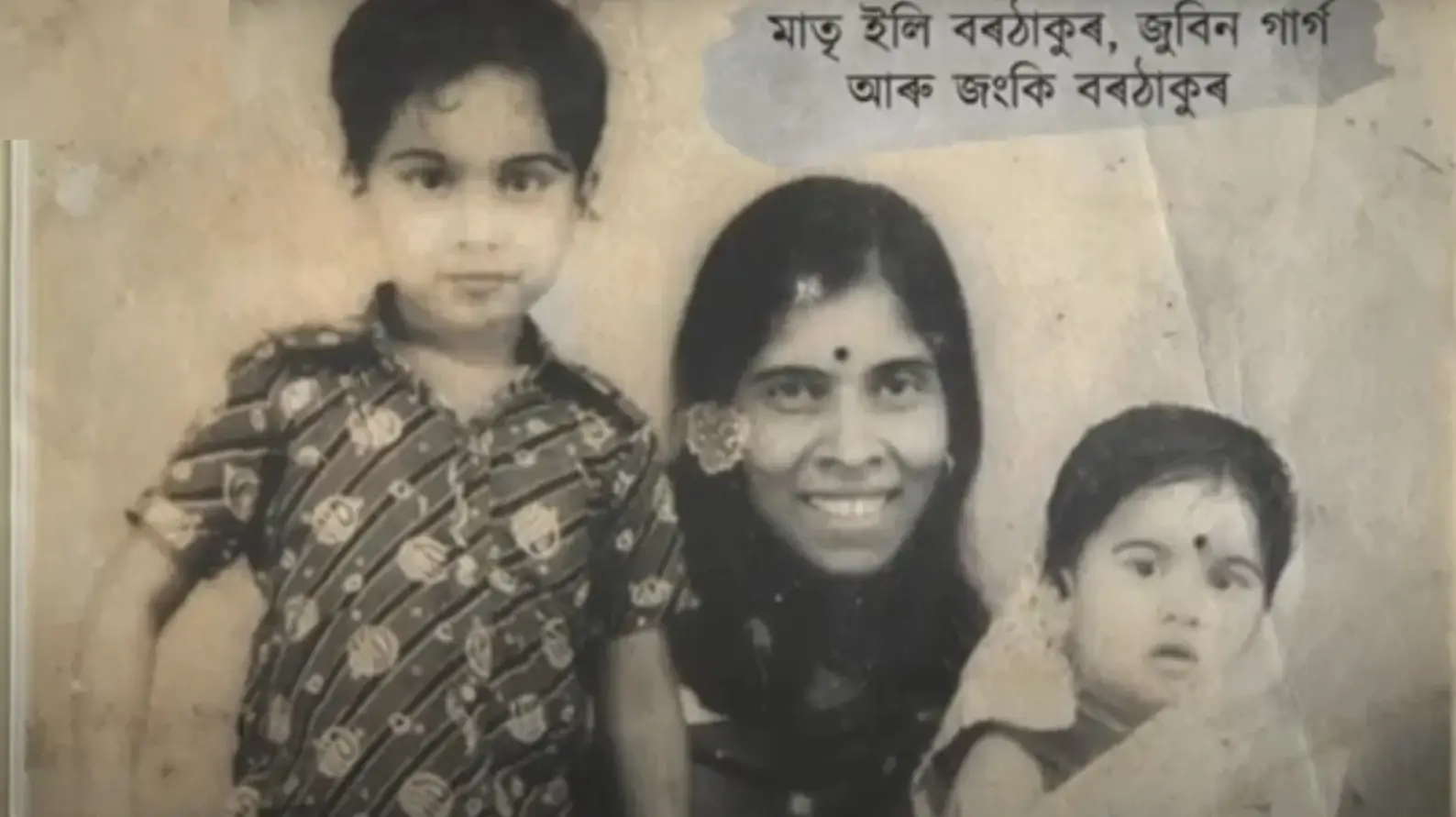
Zubeen Garg was born on November 18, 1972, in Tura, Meghalaya, but he grew up in Jorhat and Guwahati, Assam. His parents, late Mohini Mohan Borthakur and late Ily Borthakur, were deeply connected to the arts — his mother being a lyricist and his father a poet. This creative household planted the seeds of music in young Zubeen’s heart. He was named after the legendary composer Zubin Mehta, symbolizing his parents’ dream of seeing him become a musical prodigy.
Growing up in Assam during the 1970s and 1980s meant being surrounded by rich folk traditions and the soulful strains of Bihu songs. Zubeen, even as a child, showed remarkable interest in music. He performed at local functions, school events, and community gatherings, often leaving audiences amazed at his maturity and control over his voice. His sister, the late Jonkie Borthakur, also became a noted singer, proving that music truly ran in the family.
This early exposure to art and culture became the foundation for Zubeen Garg’s lifelong relationship with music, giving him a unique perspective and emotional depth.
Education and Musical Training
Zubeen Garg’s education was as vibrant as his music career. He studied in various schools in Assam, including Tura Government School, before moving to Guwahati. He enrolled at Jagannath Barooah College (J.B. College), Jorhat, for higher studies but soon realized that his calling was music. He formally trained in classical music, tabla, and guitar, mastering a wide range of instruments from an early age.
Unlike many contemporary artists, Zubeen’s grounding in classical traditions gave his songs a distinctive flavor. His command over ragas, rhythm, and improvisation has often been cited by critics as a key reason for his enduring appeal. This training also enabled him to experiment across genres — from soulful ballads to fast-paced rock numbers.
Interestingly, Zubeen Garg also took lessons in Western music and piano, which helped him blend Eastern and Western musical traditions seamlessly. This cross-cultural foundation set the stage for his later success in Bollywood and beyond.
Zubeen Garg’s Journey into Assamese Music
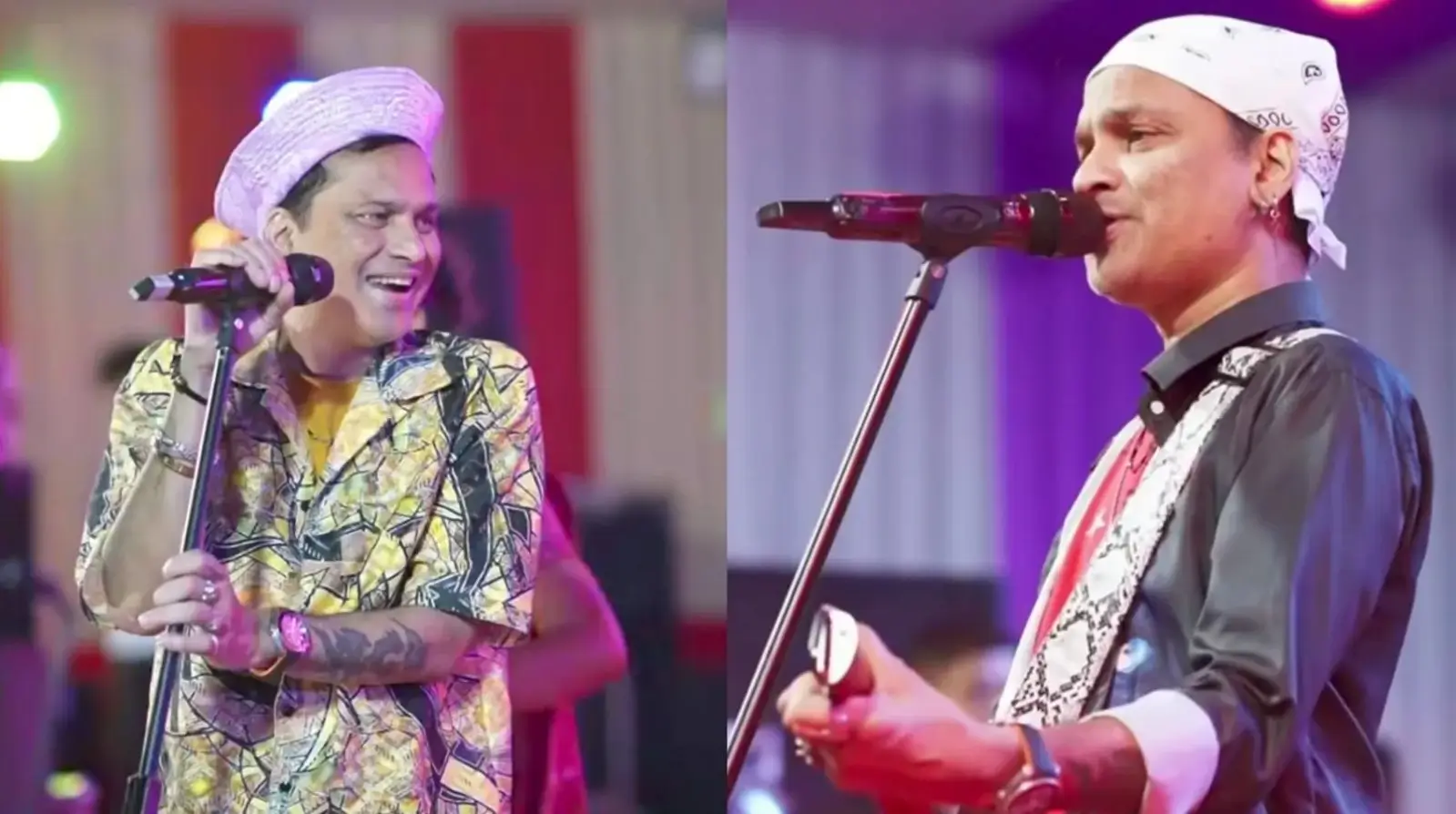
The Assamese music industry in the 1990s was in need of fresh energy. Enter Zubeen Garg — a young, passionate musician ready to redefine the sound of Assam. His first album, “Anamika” (1992), became an instant hit and turned him into a household name almost overnight. Tracks like “Mayabini” and “Mon” showcased his ability to express deep emotions, and his voice resonated with Assamese youth across the state.
He wasn’t just a singer; he was a phenomenon. At a time when Assamese music was largely confined to traditional folk styles, Zubeen introduced contemporary beats, modern instruments, and catchy hooks, making Assamese songs appealing to a younger generation. His success gave rise to a new wave of artists who dared to experiment and innovate.
Breakthrough Song That Changed His Career
Though he had already achieved fame in Assam, Zubeen Garg’s national breakthrough came with the Bollywood hit “Ya Ali” from the film “Gangster” (2006). The song became one of the biggest chartbusters of the decade, topping music charts across India and abroad. Its haunting melody and Zubeen’s soulful rendition won him accolades, awards, and a new fan base.
“Ya Ali” didn’t just make Zubeen Garg famous; it also positioned him as a versatile artist who could bridge the gap between regional and national music industries. After this, offers from Bollywood and other Indian film industries poured in, cementing his place as a top-tier playback singer.
Musical Style and Signature Voice
What makes Zubeen Garg’s music unforgettable is his signature voice — a blend of raw emotion, rich tonal quality, and effortless high notes. Unlike many singers who stick to a single style, Zubeen has embraced multiple genres, including pop, rock, folk, classical, and devotional music.
His Assamese songs often carry the earthy tones of the region’s folk traditions, while his Hindi songs have a universal appeal. He is also known for his powerful live performances where he blends singing with instrumental mastery, often playing the guitar or drums while singing.
His ability to infuse storytelling into music — narrating emotions rather than just singing words — makes his work deeply relatable. Fans often say that listening to Zubeen Garg is like hearing their own emotions being sung aloud.
Zubeen Garg as a Playback Singer in Bollywood
Zubeen Garg’s entry into Bollywood may have been marked by “Ya Ali,” but he went on to sing for several other Hindi films, including “Chup Chup Ke” (2006), “Faltu” (2011), and “Babloo Bachelor” (2020). His Bollywood career has been relatively selective, yet impactful.
He has also lent his voice to Bengali, Tamil, Telugu, and Nepali films, proving his linguistic versatility. Unlike many regional singers who struggle to adapt to Bollywood’s demands, Zubeen embraced the challenge and brought his unique flavor to every track.
Zubeen Garg’s Top Assamese Songs of All Time
Here are some of his most iconic Assamese tracks that continue to define his legacy:
- “Mayabini”
- “Mon”
- “Ei Mon”
- “Pakhi”
- “Jaanmoni”
- “Rowd”
- “Xixu”
- “Mur Mon Mor”
Each of these songs captures a different facet of Zubeen Garg’s talent — from romantic ballads to upbeat tracks with folk undertones.
Top Hindi Songs Sung by Zubeen Garg
While “Ya Ali” remains his most famous Hindi song, Zubeen has also sung:
- “Bheegi Bheegi” (Gangster)
- “Tum Mile” (Live Performances)
- “Dil Tu Hi Bataa” (Live Cover)
These songs showcase his range and ability to handle high-energy tracks as well as soulful ballads.
Zubeen Garg’s Multi-Lingual Versatility
One of the most remarkable aspects of who is Zubeen Garg lies in his multi-lingual versatility. He has sung in more than 10 languages, including Assamese, Hindi, Bengali, Tamil, Telugu, Nepali, and Marathi. This linguistic diversity not only reflects his adaptability but also his commitment to connecting with a wider audience.
This versatility has made him a pan-Indian artist with fans stretching from the Northeast to Mumbai, Kolkata, and beyond. His concerts often feature songs in multiple languages, drawing massive crowds who sing along regardless of their native tongue.
Albums That Defined His Career
Zubeen Garg is not just a playback singer; he’s also a prolific album artist. His Assamese albums like “Anamika” (1992), “Mukti” (1994), “Zubeenor Gaan” (1995) and “Nostalgia” (1999) cemented his status as Assam’s musical superstar. In Hindi, his devotional and pop albums brought a new audience to his work.
These albums stand as milestones because they capture the evolution of his artistry — from experimental sounds in the early 1990s to mature, genre-defining records in the 2000s. Many young Assamese artists consider these albums their blueprint for success.
Zubeen Garg as a Music Composer
When we explore who is Zubeen Garg, we see he is equally powerful behind the microphone and behind the mixing console. As a composer, he’s scored music for Assamese films like “Mission China” and “Kanchanjangha”, and has arranged soundtracks for numerous regional films.
His ability to compose is rooted in his classical training and his habit of experimenting with fusion. He often blends Assamese folk instruments like the pepa or dhol with modern synth beats, creating an instantly recognizable soundscape.
Awards and Recognitions Received by Zubeen Garg
Over the decades, Zubeen Garg has collected dozens of awards:
- National Film Award (Best Music Direction for Assamese film)
- Filmfare Awards (Eastern Region)
- Prag Cine Awards multiple times
- GIMA nominations for his Hindi songs
Beyond the trophies, his greatest recognition remains the loyalty of his fans who have supported him through every phase of his career.
Zubeen Garg’s Acting Career
Few people know that Zubeen Garg is also an actor. He made his acting debut in Assamese films such as “Mon” (2002) and later took on roles in “Dinabandhu” and “Mission China.” His performances show a natural screen presence and a willingness to take risks with unconventional roles.
He also ventured into direction and production, making him a true all-rounder in the Assamese entertainment industry.
Contributions to Assamese Film Industry
Zubeen Garg has been instrumental in modernizing the Assamese film industry. As a producer and music director, he invests in new talent, provides opportunities to young singers and technicians, and pushes for better production quality. His blockbuster “Mission China” remains one of Assam’s highest-grossing films.
By creating commercially viable yet culturally rooted films, he has helped revive public interest in Assamese cinema.
Philanthropic Activities and Social Work
Beyond the limelight, Zubeen Garg is known for his generosity. He organizes benefit concerts for disaster relief, supports NGOs working for child welfare, and is vocal about mental health awareness. During the Assam floods, he personally visited affected areas and raised funds for victims.
This side of Zubeen Garg reveals the human being behind the artist — a compassionate figure who uses his fame to bring tangible change.
Zubeen Garg’s Political and Social Views
Zubeen Garg has never shied away from expressing his views on social and political issues. From environmental conservation to cultural preservation, he’s been a strong voice in Assam’s civil society. He has also spoken out against corruption and drug abuse, aligning himself with grassroots movements.
His activism makes him more than an entertainer; he’s a public intellectual shaping conversations about Assam’s future.
Influence on Assam’s Youth and Culture
If you ask a young Assamese about who is Zubeen Garg, chances are they’ll call him their icon. His songs speak to the aspirations, heartbreaks, and everyday struggles of the youth. By modernizing Assamese music, he made it “cool” again, inspiring a new generation to embrace their culture proudly.
Collaborations with Other Artists
Zubeen Garg’s collaborations span genres and geographies. He has worked with top music directors like Pritam, collaborated with Assamese stars like Papon, and frequently features younger artists in his concerts. These collaborations create a bridge between generations and styles.
Controversies and Public Life
No icon’s journey is without controversy. Zubeen Garg has faced criticism for outspoken comments, on-stage remarks, and political stances. However, these controversies have also highlighted his refusal to be a “manufactured” celebrity. He remains authentic and unapologetic, which only deepens his connection with fans.
Zubeen Garg’s Role in Promoting Assamese Culture
From wearing traditional attire on stage to incorporating Assamese folk motifs into his videos, Zubeen Garg acts as a cultural ambassador. He has performed in the UK, USA, and Middle East, bringing Assamese lyrics to global audiences.
Musical Instruments Mastered by Zubeen Garg
Beyond singing, Zubeen Garg is a multi-instrumentalist. He plays:
- Tabla
- Guitar
- Keyboard
- Drums
- Various folk instruments
This ability adds richness to his concerts, where he often surprises fans by switching between instruments mid-performance.
Signature Concert Tours and Live Performances
Zubeen Garg’s live shows are legendary. From Bihu festivals in Assam to international concerts in London and Dubai, his stage presence electrifies audiences. He blends old classics with new hits, often improvising lyrics and involving the crowd.
Business Ventures and Entrepreneurship
Zubeen Garg owns Zubeen Garg Productions, invests in film projects, and runs his own music label. These ventures give him creative freedom and financial stability while nurturing Assam’s entertainment ecosystem.
Personal Life and Family
Zubeen Garg is married to Gargi Baruah, who is also an artist. Despite his celebrity status, he maintains a low-key private life filled with painting, writing poetry, and composing music in his home studio.
Books, Biographies, and Documentaries
Several books and documentaries have chronicled Zubeen Garg’s journey. Titles like “Zubeen Garg: An Odyssey” explore his impact on Assamese music and culture. These resources give fans and researchers deeper insights into his multifaceted personality.
Fan Following and Social Media Presence
Zubeen Garg enjoys millions of followers across Facebook, Instagram, and YouTube. His online presence keeps him connected with a global Assamese diaspora. Fans eagerly share concert clips, rare interviews, and new releases, amplifying his reach far beyond India’s borders.
Legacy and Influence on Future Artists
Zubeen Garg’s legacy is already visible in the rising stars of Assam. Young singers often cite him as their primary inspiration. His insistence on originality, cultural pride, and social responsibility has set a new standard for what it means to be a successful artist from the Northeast.
FAQs – Who is Zubeen Garg?
Q1: Who is Zubeen Garg?
He is an Indian playback singer, composer, actor, and philanthropist from Assam, best known for his Assamese and Bollywood hits.
Q2: What is Zubeen Garg famous for?
He’s famous for his versatile singing, especially the Bollywood song “Ya Ali” and countless Assamese hits.
Q3: How many languages does he sing in?
Over 10 languages, including Assamese, Hindi, Bengali, Tamil, Telugu, and Nepali.
Q4: Is Zubeen Garg involved in movies?
Yes, he has acted in and produced several Assamese films like “Mission China.”
Q5: What makes Zubeen Garg unique?
His ability to blend regional identity with national appeal, his multi-instrumental skills, and his activism.
Conclusion – The Enduring Legacy of Zubeen Garg
When we finally answer the question “who is Zubeen Garg,” we see a man who is far more than a singer. He is a cultural icon, a philanthropist, an actor, and an inspiration to millions. From his humble beginnings in Tura to becoming Assam’s most beloved star, Zubeen Garg has shown that authenticity, hard work, and passion can transcend borders.
His music continues to resonate because it tells real stories of love, struggle, and hope. Whether you’re an Assamese living abroad or a Bollywood fan who first heard “Ya Ali” on the radio, Zubeen Garg has likely left an imprint on your heart. As he moves into the next phase of his career, one thing is certain — his voice will keep echoing through time, inspiring generations to come.

